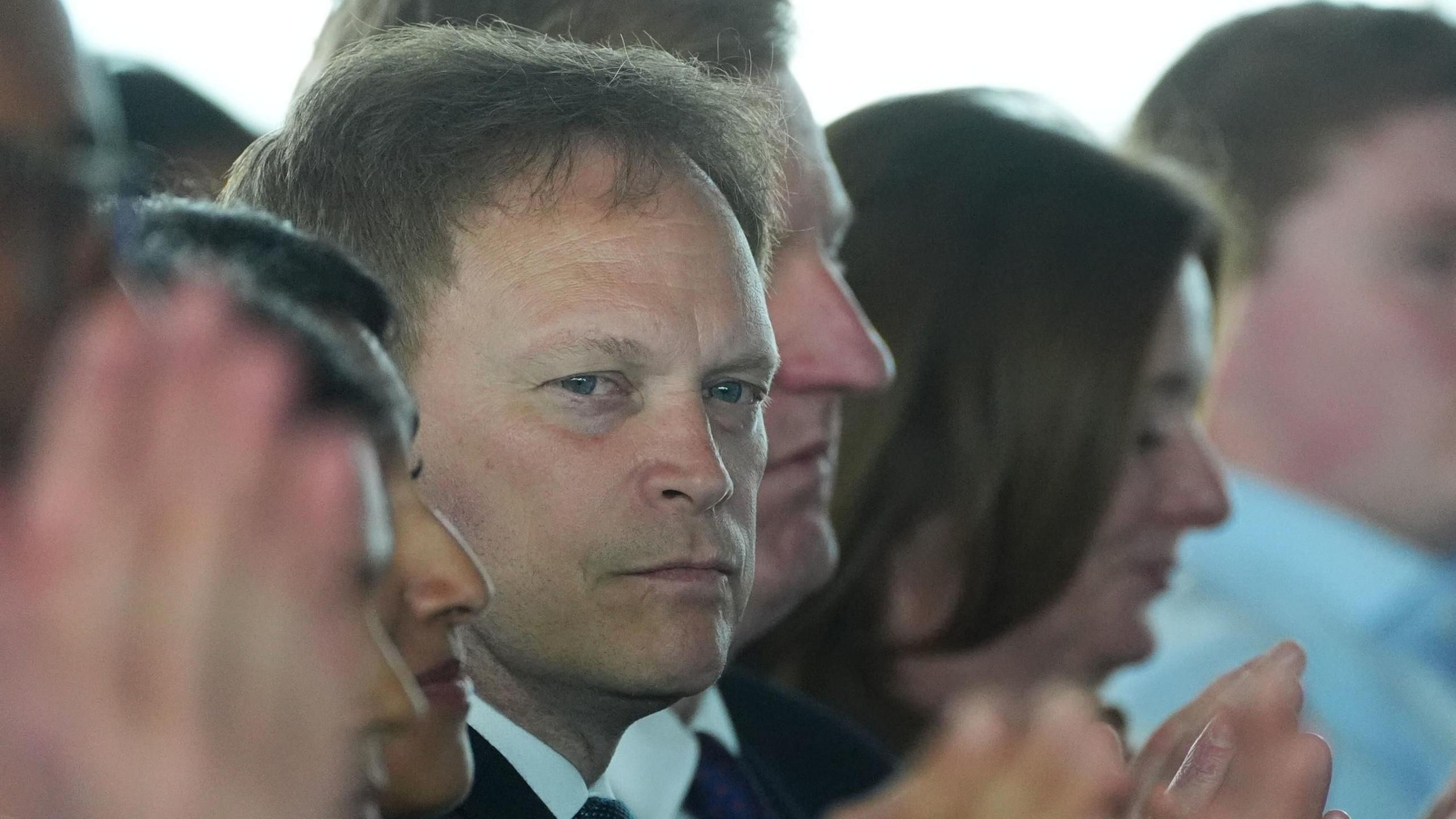Why Grant Shapps is warning about a Labour 'supermajority'

- Published
There are only two men who realistically can enter Downing Street on the morning after the general election: Rishi Sunak or Sir Keir Starmer.
Listen to the Conservatives’ messaging today, though, and you could be forgiven for thinking that there is only one possibility - Labour victory.
At least that’s what is being signalled by Grant Shapps, the defence secretary.
In an interview with Times Radio this morning Mr Shapps made the obligatory vow to “fight for every single seat in this country”.
And yes, he stressed that “the polls have been wrong before” and that “no-one’s cast a vote”.
But beyond those caveats, Mr Shapps focused on warning not only of the possibility of a Labour victory, but of a large one.
“You want to make sure that in this next government, whoever forms it, there’s a proper system of accountability,” he said.
“You don’t want to have somebody receive a supermajority. And in this case, of course, the concern would be that if Keir Starmer were to go into No 10… and that power was in some way unchecked, it would be very bad news for people in this country”.
Pressed on whether he was effectively conceding defeat with more than three weeks to go until polling day, Mr Shapps said: “I think it’s perfectly legitimate to say the country doesn’t function well when you get majorities the size of [Sir Tony] Blair’s or even bigger. And we would say there are a lot of very good, hardworking MPs who can hold the government of the day to account. And we’d say those are Conservative MPs.”
Just reflect on those last two sentences.
Mr Shapps is not arguing, there, that people should vote Conservative in order to implement tax cuts, or reduce immigration, or any of the other offers at the centre of the Conservative manifesto.
He is arguing that people should vote Conservative in order to hold a Labour government to account.
This feels like a real inflection point in the campaign.
Privately, many Conservative candidates are fairly open about their belief that victory is implausible and that their party should instead hope to limit the scale of a Labour victory.
But it’s of a different order of magnitude to see one of the Conservatives’ most experienced politicians make an argument in that direction openly. (Note, too, that Grant Shapps’s constituency is very much under threat on current polling).

This poses clear strategic challenges to the Labour Party, though. Labour campaign chiefs have been drumming a ‘no complacency’ message into their troops.
They will fear that this sort of language from the Conservatives might make some of their marginal voters feel that a Labour victory is assured and therefore they do not need to turn out to vote - or even that they can risk a protest vote for one of the smaller parties.
Sir Keir Starmer has denied it’s a foregone conclusion that Labour will win a majority.
Sir Keir said no vote had been cast yet, he couldn’t be complacent, and said he needed a “mandate” to change the country.
He added that he’s told people that “if you want change, you have to vote for it".
So what is Shapps trying to achieve here? Well, firstly it pays to remember that he is one of the Conservatives’ most experienced politicians - he knew what he was saying and he will have meant to say it.
It appears he is trying to use the possibility of a large Labour victory to ensure that a large Labour victory does not happen.
For some, this will be reminiscent of the 2017 general election where - albeit generally at a local level rather than national – some Labour candidates told voters they could back them safe in the knowledge that Theresa May would win big and Jeremy Corbyn had no chance of becoming prime minister.
Theresa May did win, but she lost her majority – some Labour candidates believed that argument made the difference for them.
This is a reminder, too, that in our saturated political-media environment, polls are no longer mere measures of public opinion - they can shape voter behaviour too.
Plenty of people are displeased by that development. But it’s a reality.

Sign up for our Election Essential newsletter to read top political analysis, gain insight from across the UK and stay up to speed with the big moments in the general election campaign. It’ll be delivered straight to your inbox every weekday.